A few words
About Us
History
Our Five Years Strategic Plan
2022-2027
1. Mission, Vision, Values
The strategic planning process reaffirms the mission and vision of the community, the strategic priorities to accomplish the vision, and reconfirms values to maintain as the First Nation works towards meeting the priorities.
VISION STATEMENT
FFSHE envisions a just and inclusive society that respects, fulfils, and advances the health and socioeconomic rights of communities in need thereby hastening the country’s advancement towards universal health coverage (UHC), the sustainable development goals (SDGs) and building a healthy nation.
MISSION STATEMENT
VALUES
Values are the FFSHE’s source of guidance and what it stands for.
Empathy, fairness, Accountability, Honesty, Partnership,
Collaboration, Transparency, Effectiveness & Generosity.
2. Strategic Priorities and Activities
i. Priority: To touch the lives of the sick, especially the less privileged positively:
This priority is important to FFSHE, because a significant proportion of Nigeria’s population live below the poverty line and are susceptible to catastrophic expenses and worsening poverty on account of burdensome healthcare costs.
Activities to achieve this priority:
a. Healthcare assistance interventions for the less privileged.
b. Actively build new relationships with foundations, government agencies, and other funders to support efforts useful to enhanced healthcare provision and access to the sick, especially the less privileged.
c. Build relationships with relevant organizational partners to gain access to new resources, new perspectives, and new ideas for improved healthcare access.
d. Infuse the concept of equity across the health sector and encourage capacity development for more young people and less privileged.
e. Advocacy for universal health coverage and increased social health insurance coverage.
ii. Priority: Health education, promotion, and awareness.
This is the second arm of FFSHE, and one that resonates strongly with the values of the organisation.
Activities to achieve this priority:
a. Education of the populace on fundamental health issues, preventive and curative health through radio, television, newspapers, and social media.
b. Health enlightenment through symposia and seminars at the grass roots – schools, markets, places of worship, settlements, corrective centers and community groups.
c. Health and medical outreaches to be organised periodically in communities and hard-to-reach areas in conjunction with other organisations, philanthropists, departments, and agencies.
iii. Priority: To pave the way for inclusiveness of youths and people living with disabilities (PLWDs) in a competitive society such as Nigeria.
FFSHE together with network partnerships will strive to convene both stakeholders and partners, using evidence-based advocacy to influence health system processes, policy, and health priorities in support of youths, people living with disabilities in Nigeria.
Activities to achieve this priority:
a. Identify gaps within the health and development sector with implications for youth and people living with disabilities.
b .Find innovative ways to communicate with and engage youth and PLWDs, including the development of relatable information, education and communication materials and programmes.
c .Benchmark activities to ensure that FFSHE continues to meet the needs of the target population. partner needs.
d. Ensure that FFSHE becomes a prominent advocacy voice for the representation of youths and PLWDs.
e. Review our regular knowledge dissemination tools and strategies to meet the needs of youths and PLDs. This includes the FFSHE website, e-newsletters, and IEC materials.
f. Consider other appropriate knowledge dissemination tools to meet the needs of changing realities.
iV.
Priority: To encourage the less privileged and people living with
disabilities to become independent by providing them with entrepreneurship
skills and basic healthcare training programmes.
This priority is important to FFSHE, because people have a right to independence and self-sustenance despite any socioeconomic handicap or physical disabilities.
It contributes to reduced poverty, increased self-sufficiency and instills a sense of individual pride and accomplishment.
Activities to achieve this priority:
a. Increase the number of community members in vocational, trades training and apprenticeships
b. Increase the number of FFSHE-supported young PLD post-secondary students graduating with Diplomas and ̕Degrees
c. Provide business training and support for recipients from target groups
d. Increase the number of target-owned small business operating in communities
e. Provide technology infrastructure including high speed internet connectivity to support economic development
b. Explore alternative ways to involve PLD in decision making
3.Prioritisation of Activities
A process to prioritise the activities needs to be undertaken to focus FFSHE’s
resources in implementing its strategic plan. This prioritisation should be based on the vision, mission, values, and objectives of FFSHE.
Additionally, they should be reflective of the prevalent strengths, and weaknesses of the organisation, and opportunities, and threats as may exist in the environment.
Activity Table is attached
(See Appendix A)
4.Determination of Key Performance Indicators and Targets
Based on the strategic priority, each activity should have specific key performance indicators that are S.M.A.R.T. – Specific, Measurable, Attainable, Realistic and Timely, making the vision more concrete by defining how success is measured. To monitor the organisation’s progress towards strategic priorities, performance indicators are valuable. These will help track the realization of strategic priorities, measuring the progress towards realizing the vision.
When determining key performance indicators, the following principles should be kept in mind:
●Link to the FFSHE’s strategic priorities
●Limit to a select number that measure success
●Guide desired decisions and behaviours.
●Can be easily understood and measured; and
- Are relevant to the entirety of FFSHE’s management structur
i. Priority: To touch the lives of the sick, especially the less privileged positively:
This priority is important to FFSHE, because a significant proportion of Nigeria’s population live below the poverty line and are susceptible to catastrophic expenses and worsening poverty on account of burdensome healthcare costs.
Activities to achieve this priority:
a. Healthcare assistance interventions for the less privileged.
b. Actively build new relationships with foundations, government agencies, and other funders to support efforts useful to enhanced healthcare provision and access to the sick, especially the less privileged.
c. Build relationships with relevant organizational partners to gain access to new resources, new perspectives, and new ideas for improved healthcare access.
d. Infuse the concept of equity across the health sector and encourage capacity development for more young people and less privileged.
e. Advocacy for universal health coverage and increased social health insurance coverage.
ii. Priority: Health education, promotion, and awareness.
This is the second arm of FFSHE, and one that resonates strongly with the values of the organisation.
Activities to achieve this priority:
a. Education of the populace on fundamental health issues, preventive and curative health through radio, television, newspapers, and social media.
b. Health enlightenment through symposia and seminars at the grass roots – schools, markets, places of worship, settlements, corrective centers and community groups.
c. Health and medical outreaches to be organised periodically in communities and hard-to-reach areas in conjunction with other organisations, philanthropists, departments, and agencies.
iii. Priority: To pave the way for inclusiveness of youths and people living with disabilities (PLWDs) in a competitive society such as Nigeria.
FFSHE together with network partnerships will strive to convene both stakeholders and partners, using evidence-based advocacy to influence health system processes, policy, and health priorities in support of youths, people living with disabilities in Nigeria.
Activities to achieve this priority:
a. Identify gaps within the health and development sector with implications for youth and people living with disabilities.
b .Find innovative ways to communicate with and engage youth and PLWDs, including the development of relatable information, education and communication materials and programmes.
c .Benchmark activities to ensure that FFSHE continues to meet the needs of the target population. partner needs.
d. Ensure that FFSHE becomes a prominent advocacy voice for the representation of youths and PLWDs.
e. Review our regular knowledge dissemination tools and strategies to meet the needs of youths and PLDs. This includes the FFSHE website, e-newsletters, and IEC materials.
f. Consider other appropriate knowledge dissemination tools to meet the needs of changing realities.
iV.
Priority: To encourage the less privileged and people living with
disabilities to become independent by providing them with entrepreneurship
skills and basic healthcare training programmes.
This priority is important to FFSHE, because people have a right to independence and self-sustenance despite any socioeconomic handicap or physical disabilities.
It contributes to reduced poverty, increased self-sufficiency and instills a sense of individual pride and accomplishment.
Activities to achieve this priority:
a. Increase the number of community members in vocational, trades training and apprenticeships
b. Increase the number of FFSHE-supported young PLD post-secondary students graduating with Diplomas and ̕Degrees
c. Provide business training and support for recipients from target groups
d. Increase the number of target-owned small business operating in communities
e. Provide technology infrastructure including high speed internet connectivity to support economic development
f. Explore alternative ways to involve PLD in decision making
5. Implementation Suggestions
All of FFSHE’s values should inform the implementation of the strategic plan and all the work of the organisation
a. The three FFSHE priorities will be reflected in all quarterly organisational activities
b. Board of Trustees, Executive Council (Exco) and Managers shall be guided always by the strategic plan
c. Council to review the strategic plan quarterly as part of regular activities
d. Staff review the strategic plan at least once annually
e. The strategic plan should be used to set annual goals and allocate financial resources (budgeting)
f. Use as the basis for staff reports to the Executive Council
g. Use as the basis for Exco reports to relevant stakeholders (funders or community)
6.Strategic Partnerships
FFSHE will rely on strategic partnerships with individuals and organizations with whom it will develop joint activities/ projects with a commitment of resources from both parties over a particular period.
Strategic partnerships will not only be sought as a means of securing the necessary resources to deliver the organisation’s goals and priority activities, but also as a means of accessing complementary experience, expertise, and influence.
These collaborations will be strategically managed to develop alliances with national, regional, and international networks to better achieve identified objectives.
7. Monitoring & Evaluation
FFSHE activities will be organised through annual work programmes that are designed to achieve the goals and objectives outlined above.
For each annual work programme, FFSHE will set performance indicators. Regarding FFSHE advocacy, the organisation will develop tools to measure its impact. In the first instance this will be measured according to official policy documents and the extent they reflect the organisation’s views and opinions of FFSHE.
FFSHE will engage an external evaluator to review its performance and strategic direction on an annual basis.
Every year the external evaluator will present their findings to FFSHE management board.
The 5 year strategic plan will have a mid-term evaluation, which will give FFSHE leadership the opportunity to take stock of the organisation’s performance and make necessary adjustments where possible.
8. Resource Mobilisation
FFSHE will develop a resource mobilisation strategy to galvanise adequate resources for all the activities planned as reflected in its strategic plan.
The strategy will seek to:
- Diversify and expand resources for the organisation
- Explore and initiate resource mobilisation activities for long-term organisational sustainability
- Reduce FFSHE’s dependency on international donor support and increase local opportunities for generating funds, and
- Enhance the profile of FFSHE while expanding its networks.
OUR BOARD OF TRUSTEES
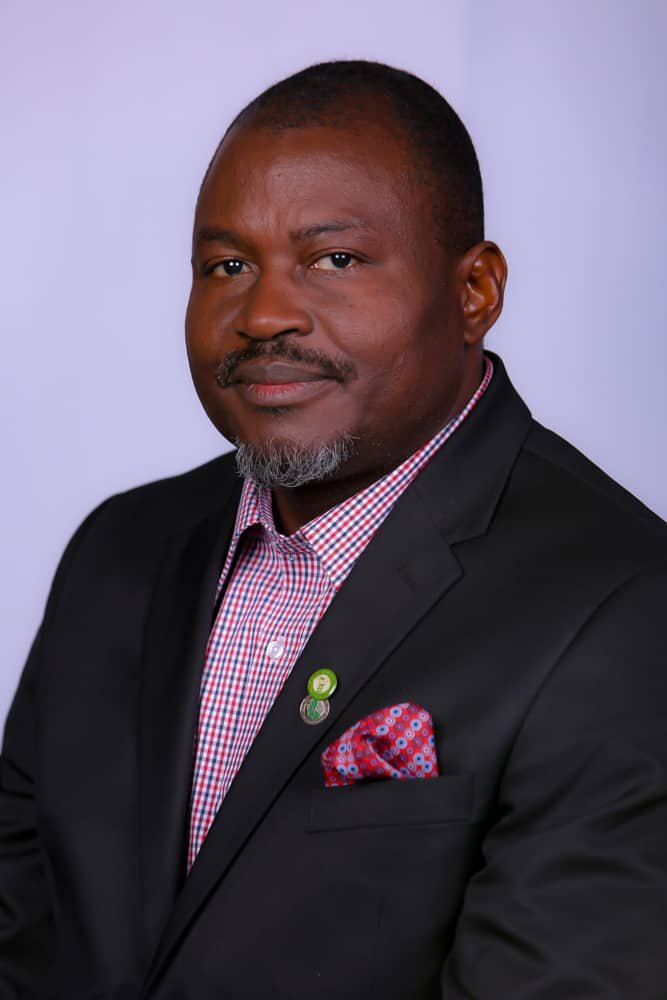
PRESIDENT
Prof. Titus. S. Ibekwe MD, MPH-HPM, FWACS, FMCORL, Cert. LFPE (Havard). Lecturer University of Abuja, Consultant ENT Surgeon and Public Health Professional
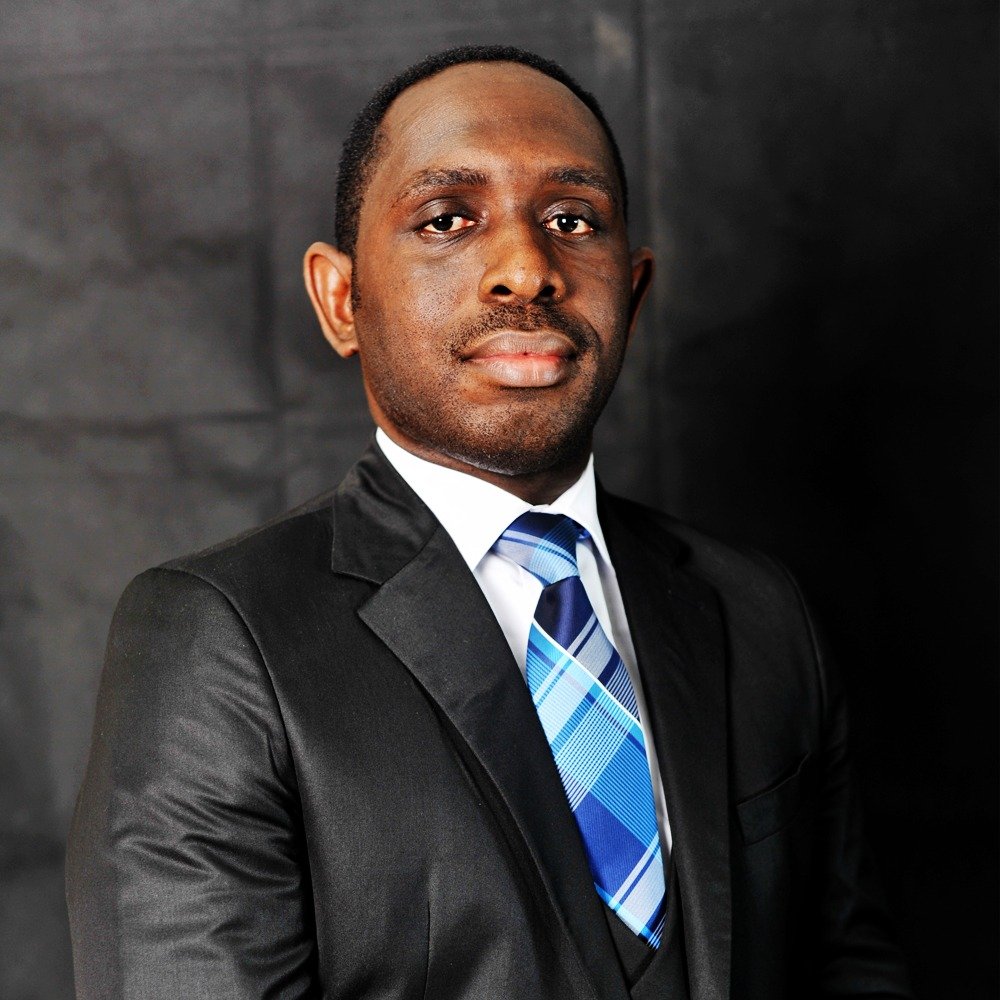
SECRETARY
Noel Orji holds a Bachelor’s Degree in Law from the University of Benin, Benin City, Edo State and Master’s Degrees in Law and Business Administration from the University of London, UK and the Ahmadu Bello University, Zaria respectively.
He is currently the Company Secretary and Head, Legal and Company Secretariat Group at a premier Financial Market Infrastructure. Prior to taking up this role he was the Company Secretary and Head,
Legal & Corporate Communications at Fidelity Pension Managers Limited. Before joining Fidelity Pension, he worked with Fidelity Bank and Diamond Bank, culminating with the leadership of the Diamond Bank litigation team for a period of over five years up till January 2018.
Noel is a member of the Nigeria Bar Association and the Chartered Institute of Arbitrators, UK.

TREASURER
Dr Adaeze Oreh is a Consultant Family Physician, Country Director of Planning, Research and Statistics for Nigeria’s National Blood Service Commission (NBSC) and Senior Health Policy Advisor with Nigeria’s Federal Ministry of Health.
She has over 19 years of private and public healthcare experience and sits on the Governing Council of Pamo University of Medical Sciences – Nigeria’s first private university of Medical Sciences.
She is a Fellow of the West African College of Physicians, the Aspen Institute, Royal Society of Tropical Medicine and Hygiene, Royal Society of Public Health and is a Member of the White Ribbon Alliance for Safe Motherhood Global Strategy Advisory Group and the International Society for Blood Transfusion COVID-19 Working Party.
She advocates for respectful, dignified quality healthcare, health equity, universal health coverage and quality medical education; and spoke on Universal Health Coverage at the 74th United Nations General Assembly in
New York.
In early 2021, Dr Oreh was one of 15 accomplished Amujae Leaders awarded by the Ellen Johnson Sirleaf Presidential Center for Women and Development and was named a Neglected Tropical Diseases Champion by the Global First Ladies Alliance and The END FUND.
She recently won a Best Poster Prize at the International Society for Blood Transfusion 2021 Congress in Amsterdam for research she led and coordinated on blood services in 34 tertiary hospitals in Nigeria during the COVID-19 pandemic, and a Best Poster Prize in the Blood Donation category at the 2021 British Blood Transfusion Society Conference for research she also led and coordinated on the impact of COVID-19 on Nigeria’s National Blood Service.
Dr Adaeze Oreh was also recently named a recipient of the 2021 Montegut Global Scholars award by the World Organization of Family Doctors and the American Board of Family Medicine Foundation, and one of 50 Most Inspiring Women in Nigeria by Business Day.
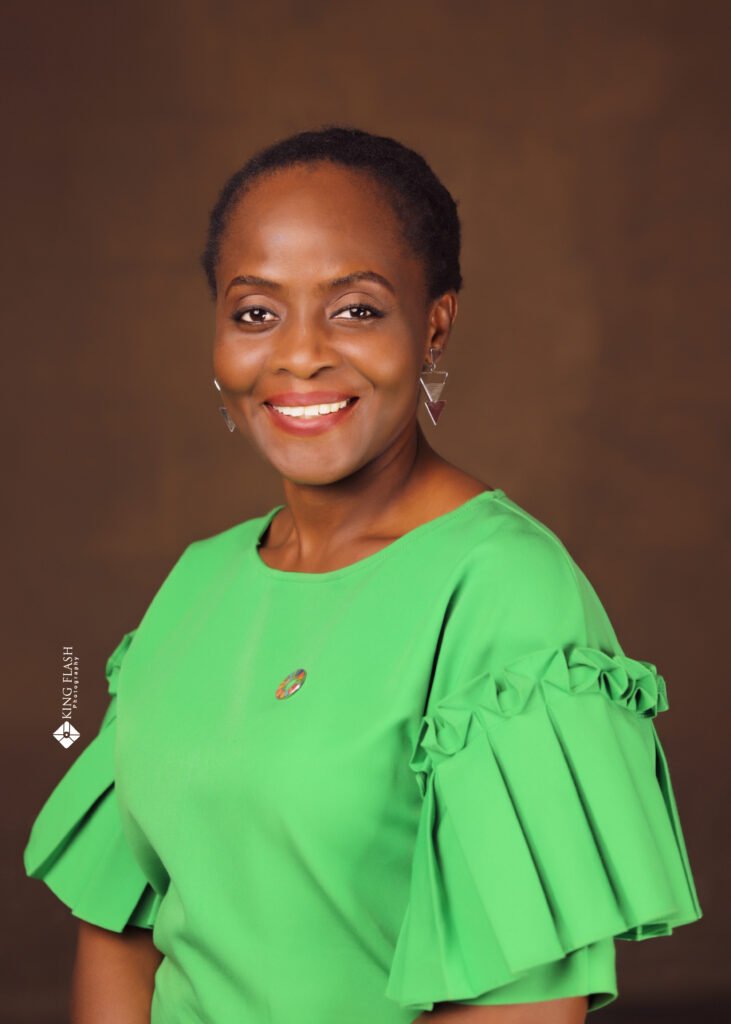
PUBLIC RELATIONS OFFICER
Dr. (Mrs) Inya J. Ode is a trained Veterinary Surgeon from the Ahmadu Bello University, Zaria.
After a rewarding three years of Veterinary Medicine practice, she moved on to pursue her passion in the media, specifically Radio in 2010. Between 2010 and 2020, Inya carved a niche as a celebrated on-air personality in radio broadcasting in Nigeria. She was the host of popular radio shows “Let’s Talk Abuja” and “The Midday Dialogue” on 95.1 Nigeria Info Abuja until November 30, 2020.
Currently, Inya heads the New Media Unit at Lux Terra Leadership Foundation and also coordinates the Network and Advocacy Project, an OSIWA Foundation & MacArthur Foundation supported project advocating National Integration, Peaceful Coexistence, Civic Responsibility, Patriotism and Social Justice in the Nigerian State.
She has been involved in various humanitarian outreaches with various organizations to cater to the needs of the poor and vulnerable including IDPs, orphans, widows and young people.
Inya is very teachable and is guided by set values in life including hard work, honesty, transparency, respect for humanity, generosity, charity and discipline.
She is married with three children.
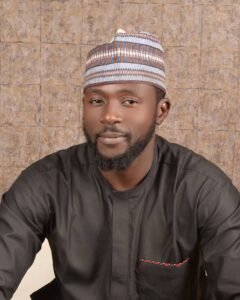
ASSISTANT SECRETARY
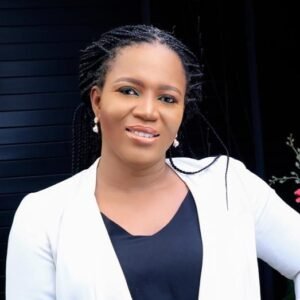
Dr. (Mrs) Pepetual .U. Ibekwe is a senior lecturer & Dermatologist, University of Abuja
MEMBER BOARD OF TRUSTEES
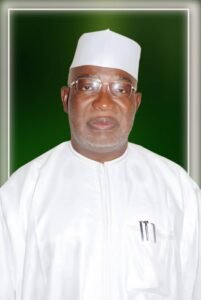
MEMBER BOARD OF TRUSTEES
PROFESSOR NUHU OMEIZA YAQUB, OFR, FSSAN, FNIIA, FSPSP, FNIM, FDMSS, FCILG
(Former Vice Chancellor University of Abuja)
He was born in Okene, Okene Local Government Area of Kogi State on the 3rd of March, 1951.
He attended the Nurul Islamic School, Okene, for my primary school education from 1959 to 1965.
He proceeded to the School for Arabic Studies, Kano, for his secondary school education from 1967 to 1971, where he trained as a Grade II teacher.
Thereafter, he came back to his alma mater, i.e., where he had his primary school education, to teach from January 1972 to September 1973, before proceeding to the Advanced Teachers’ College, Kano, to study for the Nigeria Certificate in Education (NCE), from October 1973 to June 1976.
His set of NCE graduates was the first batch to be mobilized for the National Youth Service Corps (NYSC) from August 1976 to July 1977.
After the National Service, he secured admission into the Bayero University, Kano, where he studied Political Science, from 1977 to 1980.
He graduated with a First- Class Honours degree in Political Science.
Between 1982 and 1989, he attended the University of Toronto in Canada; and the University of Sussex, Brighton, in the United Kingdom, where he earned his Master’s and Doctor of Philosophy degrees in Comparative Politics of Developing Countries and Development Studies, respectively.
He has published extensively and widely in local, national and international journals; and has also contributed chapters to books in political science and related fields.
He has delivered commissioned papers in India; Brazil; Malaysia; Germany; Pakistan; etc.
He has also attended international conferences in Europe; North America; and a host of countries in Africa.
He has received numerous awards for distinction in services to God and man.
The most important of these include the national honour of the Officer of the Order of the Federal Republic (OFR); the Fellowship of the Social Science Academy of Nigeria (FSSAN); Fellowship of the National Institute of International Affairs (FNIIA); Fellowship of the Society for Peace Studies and Practice (FSPSP); the Fellowship of the Nigerian Institute of Management (Chartered) (FNIM); the Fellowship of Disaster Management and Safety Science (FDMSS); and Fellow of the Chartered Institute of Leadership and Governance (FCILG).
He is happily married to his beautiful and dutiful wife – Hajiya Oyebola Moolykat, a Princess of Offa in Kwara State and the union is blessed with three lovely and professionally successful children. She retired from the Registry of the University of Abuja as a Deputy Registrar.
As a family, they can only say “AL-HAMDULILAAH. RABIL’AALAMEEN” (Meaning: GRATEFULNESS IS TO ALMIGHTY GOD.
THE LORD OF THE UNIVERSE).
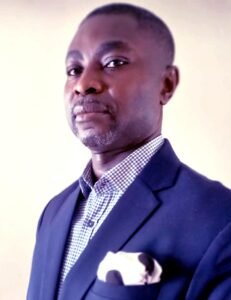
MEMBER BOARD OF TRUSTEES
Maxwell M. Nwegbu is a Professor of Chemical Pathology, at the College of Health Sciences, University of Abuja and a Consultant Chemical Pathologist with University of Abuja Teaching Hospital, Abuja-FCT.
He is the current Head, Department of Chemical Pathology and a past Dean, Faculty of Basic Clinical Sciences in the College.
An alumnus of the College of Medicine, University of Nigeria, his specialist training was at University College Hospital, Ibadan.
Dr Nwegbu is the recipient of the 2007 Awoonor-Reiner prize for best graduating Fellow (Laboratory Medicine), West African College of Physicians, Fellow of the Open Medical Institute, Austrian-American Foundation in Pathology, and Global Health Fellow of the Novartis Institute of Biomedical Research.
He is the Secretary of the CANCER SCIENCE CENTRE ABUJA (CSCA) and the North-central zonal coordinator of Continuing – Professional Development (CPD)/Medical Education (CME) of the Nigerian Medical Association (NMA).
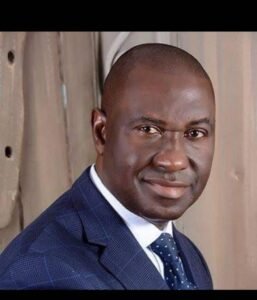
MEMBER BOARD OF TRUSTEES
Bright is a graduate of University of Nigeria, Enugu campus where he obtained a Bachelor of Science in Management and Masters of Business Administration degrees respectively in 1982 and 1987. His work in reproductive health started in 1989 when he joined the Family Health Services Project (FHS) of the United States Agency for International Development (USAID) as a Program Officer – responsible for commodity logistics in the private sector component of the project.
In March 1993, he joined Society for Family Health, as Private Institutions Sales/Logistics Coordinator where he was responsible for planning and coordinating product supplies to NGOs and USAID sponsored projects as well as tracking shipping schedules and clearance of product shipments through the Nigeria ports.
Founded in 1985, the Society for Family Health (SFH) is a foremost indigenous vibrant civil society organization dedicated to empowering Nigerians, particularly the poor and vulnerable to lead healthier lives by supporting public health intervention efforts of the Federal Government of Nigeria. With specialization in the areas of HIV/AIDS prevention, Reproductive Health, Neonatal/Maternal and Child Health and Safe Water Systems and headquartered in Abuja, SFH deploys social marketing techniques in reaching its target population with services through health communication, advocacy, research, community mobilization and access to health products.
Following an impressive growth and unflinching dedication at SFH, the Board of Trustees unanimously appointed Bright the first indigenous Managing Director of Society for Family Health and Country Representative of Population Services International in Nigeria in January 2005; with responsibility for the overall development and management of one of the largest Social Marketing Programs in the world with an annual budget of over $80 million. SFH is funded by several international donor agencies including the United States Agency for International Development (USAID), the UK Aids for International Development (DFID), the Global Fund to Fight HIV/AIDS, Malaria and Tuberculosis, and Bill, Melinda Gates Foundation and World Health Organisation.
Under his
leadership, the Society for Family Health grew from strength to strength, with
over 1,000 highly skilled employees operating from 24 offices spread across
Nigeria’s six geopolitical zones reaching out and impacting people’s lives,
particularly the poor and vulnerable. Bright
in his quest to uphold good corporate governance voluntarily disengaged from
SFH in December 2018 after over 25 years of meritorious service, out of which
he spent 14 years as Managing Director.
Bright is
currently the Regional Director for African West and Central for Christoffel
Blinden Mission (CBM) International. He
joined CBM International in 2019 as Country Director and was promoted to
Regional Director in October 2023. CBM is an international development
organisation which is committed to improving the quality of life of persons
with disabilities in the poorest countries of the world. Bright is committed to ensuring that all and
sundry uphold the vision of CBM – a world in which persons with disabilities
enjoy their human rights and achieve their full potentials.
Bright is also
a Knight of John Wesley since 2009 and is a devout Christian. He is married with children.

